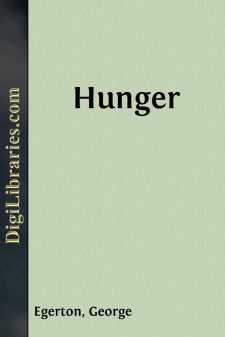Categories
- Antiques & Collectibles 13
- Architecture 36
- Art 48
- Bibles 22
- Biography & Autobiography 815
- Body, Mind & Spirit 144
- Business & Economics 28
- Children's Books 18
- Children's Fiction 14
- Computers 4
- Cooking 94
- Crafts & Hobbies 4
- Drama 346
- Education 58
- Family & Relationships 59
- Fiction 11829
- Games 19
- Gardening 17
- Health & Fitness 34
- History 1378
- House & Home 1
- Humor 147
- Juvenile Fiction 1873
- Juvenile Nonfiction 202
- Language Arts & Disciplines 89
- Law 16
- Literary Collections 686
- Literary Criticism 179
- Mathematics 13
- Medical 41
- Music 40
- Nature 179
- Non-Classifiable 1768
- Performing Arts 7
- Periodicals 1453
- Philosophy 65
- Photography 2
- Poetry 896
- Political Science 203
- Psychology 44
- Reference 154
- Religion 515
- Science 126
- Self-Help 85
- Social Science 82
- Sports & Recreation 34
- Study Aids 3
- Technology & Engineering 59
- Transportation 23
- Travel 463
- True Crime 29
Our website is made possible by displaying online advertisements to our visitors.
Please consider supporting us by disabling your ad blocker.
Hunger
by: George Egerton
Description:
Excerpt
Knut Hamsun
Since the death of Ibsen and Strindberg, Hamsun is undoubtedly the foremost creative writer of the Scandinavian countries. Those approaching most nearly to his position are probably Selma Lagerlöf in Sweden and Henrik Pontoppidan in Denmark. Both these, however, seem to have less than he of that width of outlook, validity of interpretation and authority of tone that made the greater masters what they were.
His reputation is not confined to his own country or the two Scandinavian sister nations. It spread long ago over the rest of Europe, taking deepest roots in Russia, where several editions of his collected works have already appeared, and where he is spoken of as the equal of Tolstoy and Dostoyevski. The enthusiasm of this approval is a characteristic symptom that throws interesting light on Russia as well as on Hamsun.
Hearing of it, one might expect him to prove a man of the masses, full of keen social consciousness. Instead, he must be classed as an individualistic romanticist and a highly subjective aristocrat, whose foremost passion in life is violent, defiant deviation from everything average and ordinary. He fears and flouts the dominance of the many, and his heroes, who are nothing but slightly varied images of himself, are invariably marked by an originality of speech and action that brings them close to, if not across, the borderline of the eccentric.
In all the literature known to me, there is no writer who appears more ruthlessly and fearlessly himself, and the self thus presented to us is as paradoxical and rebellious as it is poetic and picturesque. Such a nature, one would think, must be the final blossoming of powerful hereditary tendencies, converging silently through numerous generations to its predestined climax. All we know is that Hamsun's forebears were sturdy Norwegian peasant folk, said only to be differentiated from their neighbours by certain artistic preoccupations that turned one or two of them into skilled craftsmen. More certain it is that what may or may not have been innate was favoured and fostered and exaggerated by physical environment and early social experiences.
Hamsun was born on Aug. 4, 1860, in one of the sunny valleys of central Norway. From there his parents moved when he was only four to settle in the far northern district of Lofoden--that land of extremes, where the year, and not the day, is evenly divided between darkness and light; where winter is a long dreamless sleep, and summer a passionate dream without sleep; where land and sea meet and intermingle so gigantically that man is all but crushed between the two--or else raised to titanic measures by the spectacle of their struggle.
The Northland, with its glaring lights and black shadows, its unearthly joys and abysmal despairs, is present and dominant in every line that Hamsun ever wrote. In that country his best tales and dramas are laid. By that country his heroes are stamped wherever they roam. Out of that country they draw their principal claims to probability....


